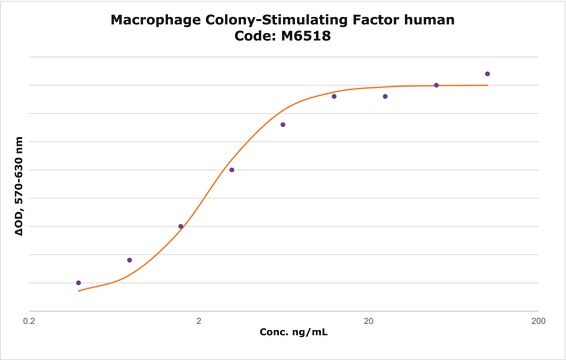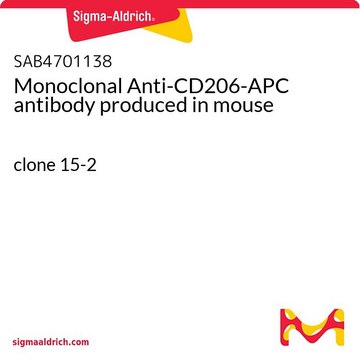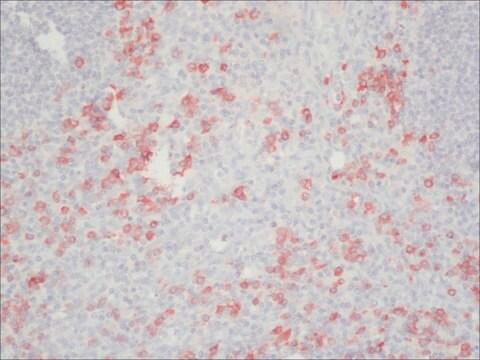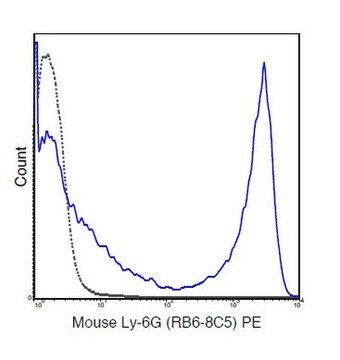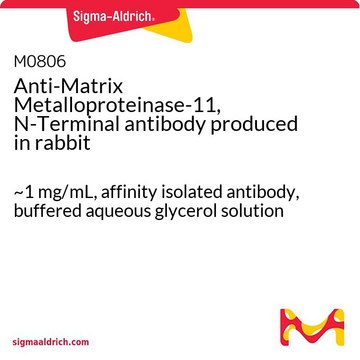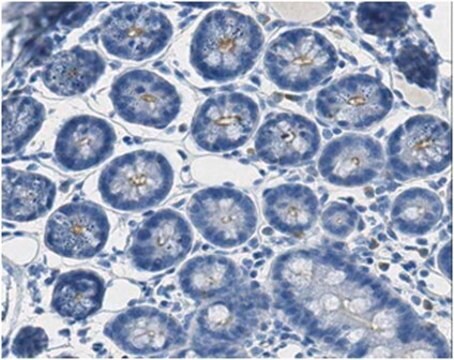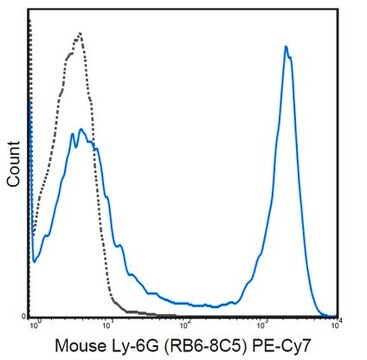SAB4700622
Monoclonal Anti-Ly6g-FITC antibody produced in rat
clone RB6-8C5, purified immunoglobulin, buffered aqueous solution
Synonym(s):
Anti-Gr-1, Anti-Gr1, Anti-Ly-6G
About This Item
Recommended Products
biological source
rat
Quality Level
conjugate
FITC conjugate
antibody form
purified immunoglobulin
antibody product type
primary antibodies
clone
RB6-8C5, monoclonal
form
buffered aqueous solution
species reactivity
mouse
concentration
1 mg/mL
technique(s)
flow cytometry: suitable
isotype
IgG2b
NCBI accession no.
UniProt accession no.
shipped in
wet ice
storage temp.
2-8°C
target post-translational modification
unmodified
Gene Information
mouse ... Ly6g(546644)
Related Categories
General description
Immunogen
Application
Biochem/physiol Actions
Features and Benefits
Physical form
Disclaimer
Not finding the right product?
Try our Product Selector Tool.
Storage Class Code
10 - Combustible liquids
Flash Point(F)
Not applicable
Flash Point(C)
Not applicable
Choose from one of the most recent versions:
Certificates of Analysis (COA)
Don't see the Right Version?
If you require a particular version, you can look up a specific certificate by the Lot or Batch number.
Already Own This Product?
Find documentation for the products that you have recently purchased in the Document Library.
Our team of scientists has experience in all areas of research including Life Science, Material Science, Chemical Synthesis, Chromatography, Analytical and many others.
Contact Technical Service